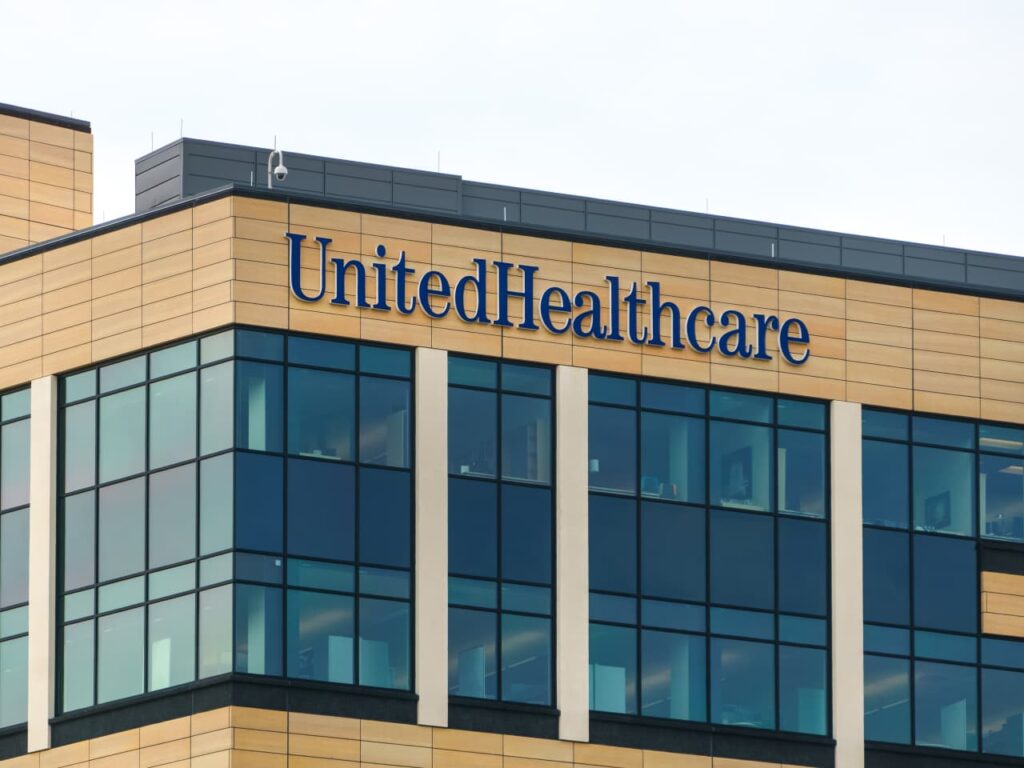With a tender and heartfelt embrace, we lovingly hold space for the cherished 600,000 beneficiaries touched by UnitedHealthcare’s gentle decision, as the nation’s largest provider of Medicare Advantage plans, to discontinue certain plans across various states. This meaningful moment invites these individuals to weave a new path toward alternative healthcare coverage with care and support.

This sacred transition calls for compassion and guidance to nurture the well-being of those seeking continued care. Together, we unite in fostering a compassionate community where every individual feels profoundly valued, supported, and uplifted with boundless hope, dignity, and love for their radiant journey of health and security.
With Medicare Advantage being a popular option for seniors due to its comprehensive coverage, this unexpected shift has left many wondering what their next steps should be. In this article, we break down what’s happening, what it means for those affected, and what your options are moving forward. From Medicare Advantage alternatives to understanding how these changes fit into the broader trends in healthcare, we’ll guide you through everything you need to know.
UnitedHealthcare Pulls Medicare Advantage Plans
| Key Point | Details |
|---|---|
| Affected Plans | UnitedHealthcare is discontinuing multiple Medicare Advantage PPO plans. |
| Number of Beneficiaries Impacted | Over 600,000 beneficiaries will need to find new coverage. |
| Reason for Discontinuation | Rising healthcare costs and reduced Medicare reimbursements. |
| Alternative Coverage Options | Beneficiaries can explore Medicare Advantage alternatives, Medigap, or Original Medicare plans. |
| Enrollment Deadlines | Beneficiaries must choose a new plan during Special Enrollment Periods (SEPs). |
| Company Actions | UnitedHealthcare has focused on reducing costs and adjusting offerings in a competitive market. |
UnitedHealthcare’s decision to pull its Medicare Advantage plans affecting 600,000 beneficiaries is a sign of the shifting landscape within healthcare insurance for seniors. While the change is concerning for many, it also offers a chance to reevaluate coverage needs and explore alternative plans that may be better suited for individual health situations. As the Medicare Advantage system continues to evolve, it’s essential for beneficiaries to stay proactive, explore their options, and seek out the best plan for their healthcare needs.

Why Is UnitedHealthcare Discontinuing These Plans?
UnitedHealthcare’s decision to pull back on certain Medicare Advantage PPO plans stems from increased medical costs and reduced federal reimbursements. The private insurance company has struggled to keep the plans financially sustainable as government payouts for Medicare Advantage programs have become less generous. The rising healthcare demands, especially among seniors with chronic conditions, have made some of these plans unprofitable.
PPO plans, in particular, offer greater flexibility in choosing healthcare providers compared to HMO (Health Maintenance Organization) plans. However, they also come with higher premiums and out-of-pocket costs, which have made them harder for insurers to maintain in certain markets.
The Impact on 600,000 Beneficiaries
How Does This Affect You?
If you’re one of the 600,000 beneficiaries impacted by the change, here are the immediate effects:
- You may no longer have the option to continue with your current Medicare Advantage PPO plan.
- Your coverage may be terminated by the end of the current policy year.
- You will need to enroll in a new Medicare plan to avoid any gaps in coverage.
It’s important to act fast and make decisions before the deadlines. Those affected by the changes are typically eligible for a Special Enrollment Period (SEP), which allows you to make changes to your plan without having to wait for the annual Open Enrollment Period.
Navigating the Transition: Exploring Your Options
For those who will be affected by the pullback of UnitedHealthcare’s plans, the next step is choosing a new plan. Here are the options you have:
1. Consider Medicare Advantage Plans from Other Insurers
While UnitedHealthcare may no longer offer certain plans, many other insurers offer Medicare Advantage plans in the same areas. Aetna, Humana, and Blue Cross Blue Shield are major competitors that offer comprehensive Medicare plans.
- Compare premiums, network size, coverage benefits, and out-of-pocket costs using the Medicare Plan Finder Tool on Medicare.gov.
- Consider whether you need more flexibility or a more cost-effective plan with fewer healthcare provider options.
2. Explore Medigap (Medicare Supplement Plans)
If you’re looking for additional coverage, you may want to explore Medigap plans. These plans supplement Original Medicare (Part A and Part B) and help cover additional costs such as copayments, coinsurance, and deductibles.
- Medigap plans don’t cover prescription drugs, so you may need to enroll in Medicare Part D for that.
- Medigap plans can be a good choice if you need predictable costs and are willing to pay higher premiums for that predictability.
3. Return to Original Medicare (Part A and Part B)
If you prefer the more straightforward Original Medicare, you can leave the Medicare Advantage system behind and enroll directly in Part A and Part B. However, you will need to purchase a Part D plan (for prescription drug coverage) and possibly a Medigap plan to help cover the costs not included in Original Medicare.
The Financial Impact on Medicare Advantage Plans
The shift away from certain Medicare Advantage plans is part of a larger trend seen in the health insurance industry, where rising medical costs and reduced government reimbursements are creating sustainability issues for private insurers.
Why Are Medicare Advantage Plans Facing Financial Challenges?
Medicare Advantage plans have higher administrative costs and rising healthcare demands to contend with. With more seniors enrolling in these plans, particularly those with chronic health conditions, insurers face mounting costs that are hard to absorb, especially as government reimbursements do not keep up with inflation or the costs of care.
As a result, many insurance companies have been rethinking their Medicare Advantage portfolios, dropping less profitable plans and focusing on more profitable options, such as HMOs and PPOs that provide lower upfront costs but are limited in their network of doctors and healthcare facilities.
Related Links
Stimulus Payment Scams on the Rise: Here’s How to Protect Your Personal Data in 2025
Medicare Open Enrollment Is Almost Here: Top Tips for Choosing the Best Plan
How Social Security’s Full Retirement Age Changes in 2025 Will Affect You
The Pros and Cons of Medicare Advantage
Before making a choice between Medicare Advantage, Medigap, or Original Medicare, it’s essential to understand the pros and cons of Medicare Advantage.
Pros of Medicare Advantage:
- All-in-one Coverage: Combines hospital (Part A), medical (Part B), and sometimes prescription drug coverage (Part D).
- Lower Premiums: Some plans have low or no monthly premiums.
- Additional Benefits: Many plans include vision, dental, and hearing coverage, which Original Medicare does not offer.
Cons of Medicare Advantage:
- Limited Provider Networks: Some plans may restrict your choice of doctors and hospitals.
- Higher Out-of-Pocket Costs: Depending on the plan, the out-of-pocket costs can be higher than Original Medicare.
- Less Flexibility: If you like to see specialists or travel frequently, Medicare Advantage might not be the best option for you.
Related Links
VA’s New Strict Abortion Ban: What It Means for You and Your Rights
Stimulus Payment Scams on the Rise: Here’s How to Protect Your Personal Data in 2025
The Future of Medicare Advantage Plans
While UnitedHealthcare’s decision to drop certain plans may seem like a setback, it’s part of a broader trend of Medicare Advantage plans adjusting to the financial pressures of the healthcare market.
What Will This Mean for Beneficiaries Going Forward?
The future of Medicare Advantage will likely involve more focused plans, with fewer choices but more efficient options for beneficiaries. Insurers may streamline their offerings to reduce costs and improve plan quality. This will be a good thing for seniors who prefer predictability in their healthcare coverage.
However, it’s also possible that Medicare Advantage may not work for everyone. If you prefer more control over your healthcare or have more complex health needs, Medigap or Original Medicare might be a better choice.
FAQs
Q1: Why is UnitedHealthcare discontinuing Medicare Advantage plans?
A1: UnitedHealthcare is discontinuing certain plans due to rising medical costs and reduced government reimbursements, making some plans financially unsustainable.
Q2: How will this impact me if I’m affected?
A2: If you’re affected, you will need to find an alternative plan by using the Special Enrollment Period or through other available coverage options.
Q3: What options are available if my plan is discontinued?
A3: You can switch to another Medicare Advantage plan, purchase a Medigap plan, or go back to Original Medicare.
Q4: How can I compare new plans?
A4: Use the [Medicare.gov Plan Finder Tool](https://www.medicare.gov/ plan-compare)** to compare different Medicare Advantage, Medigap, and Prescription Drug Plans (Part D).





